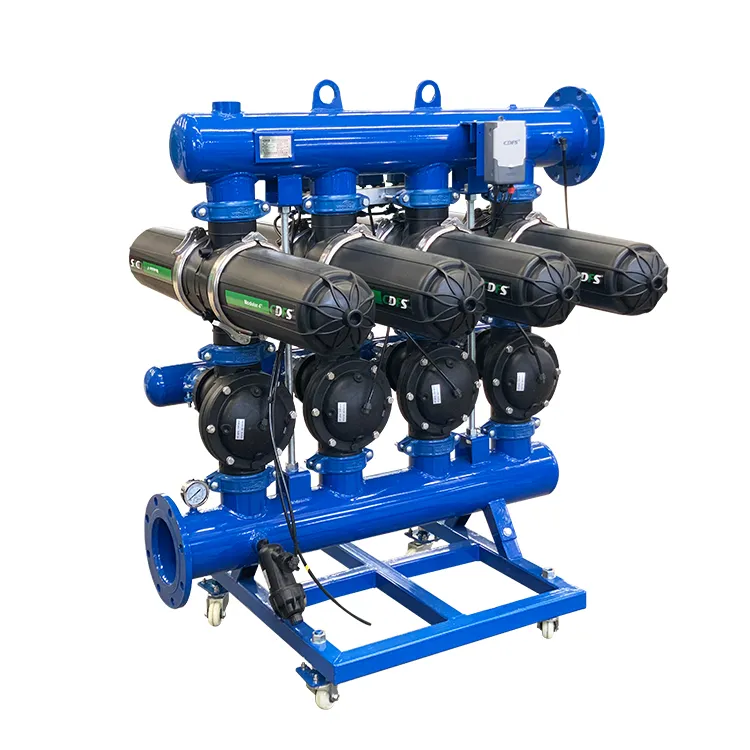
Water isn't just needed in farming these days. It's the key to growing healthy crops and getting good quality harvests. However, many farmers and decision-makers overlook one small but powerful component of their irrigation setup: the filter. A properly chosen filter doesn't just keep pipes clean; it protects the entire irrigation system, extends its lifespan, and ensures efficient water use.
Irrigation water often contains unwanted materials such as sand, silt, algae, or organic matter. Without filtration, these particles quickly clog drip lines or sprinklers. The result? Uneven water distribution, wasted fertilizer, poor crop performance, and increased maintenance costs. By removing impurities at the entry point, filters guarantee that crops receive consistent, clean water—maximizing both growth and yield.

These filters use a fine mesh screen to capture large particles such as sand and debris. They are most suitable for farms with relatively clean water sources, like wells or treated water. Their key advantages are simplicity, affordability, and ease of maintenance.
Disc filters consist of multiple grooved discs stacked together, which effectively trap smaller particles and organic matter. They are commonly used in greenhouses, orchards, and farms with moderately dirty water. Their strengths include high filtering accuracy, compact design, and long service life.
Sand media filters work by passing water through a bed of sand or gravel, which removes fine organic matter and algae. They are ideal for large-scale farms or for water sources with heavy organic contamination, such as rivers or reservoirs. Their main advantages are large capacity and high efficiency in handling organic loads.
Selecting the right filter isn't just about buying equipment—it's about matching the filter to your farm's needs. Screen filters are best for clean sources like wells or treated water, offering simple and affordable protection. Disc filters suit farms with moderate organic matter, such as orchards or greenhouses, providing higher precision and long service life. For large-scale operations or heavily contaminated sources like rivers, sand media filters deliver the capacity and efficiency needed to keep systems running smoothly.
1. Why do I need a filter if my water looks clean?
Even clear water may contain microscopic particles that can clog drip emitters or damage pumps. A filter ensures long-term system protection.
2. How do I know which type of filter is best for my water source?
Screen filters are best for clean water, disc filters for water with moderate organic matter, and sand media filters for heavily contaminated water sources.
3. Are plastic filters reliable for long-term use?
Yes, plastic filters are lightweight, corrosion-resistant, and easy to maintain, but they may wear out faster under high pressure or heavy use.
4. When should I choose a carbon steel filter instead of plastic?
Carbon steel filters are ideal for large farms with high-pressure systems or abrasive water, offering superior durability and longer service life.
A filter may seem like a small component in an irrigation system, but it plays a giant role in protecting your investment. By preventing blockages, reducing maintenance, and ensuring uniform water distribution, the right filter can boost efficiency and crop yield.
